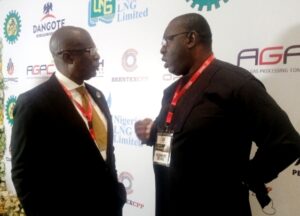The Minister of State for Petroleum Resources, Chief Timipre Sylva, has engaged oil and gas stakeholders on actualising Nigeria’s domestic refining target of 1.4 million barrels per day in the next five years.

Sylva spoke at the Nigerian Content Midstream and Downstream Oil and Gas Summit organised by the Nigerian Content Development and Monitoring Board (NCDMB) in Lagos.
The summit had as its theme: “Maximising Potential in the Midstream and Downstream Oil and Gas Sector – A Local Content Perspective.”
Sylva said one of the mandates of the Ministry of Petroleum Resources under the Next Level Agenda of the current administration was to increase Nigeria’s domestic refining capacity.
“Waltersmith Refinery, Azikel Refinery, and Atlantic Refinery are some of the partnerships that NCDMB has built to grow domestic refining capacity.
”This is in line with the vision of the board to be the catalyst for the industrialisation of the Nigerian oil and gas industry and its linkage sectors,” the minister stated.
He maintained that Nigeria had adopted gas as its transition fuel towards the actualisation of its net zero carbon emission and was supporting critical projects to that effect.
He said the projects included the Nigerian Liquefied Natural Gas Train 7, Ajaokuta-Kaduna-Kano Gas Pipeline, Nigeria/Morocco Gas Pipeline, TransSaharan Pipeline and the National Gas Transportation Network Code.
He said: “I am looking forward to a productive dialogue between the various stakeholders in this forum.
“I also expect that at the end of this, we would have broadened our knowledge to the Nigerian content opportunities associated with the midstream and downstream sectors.
“We must find ways to unlock the natural gas and domestic production potential of Nigeria and drag millions of our people out of energy poverty.”
Also, Mr Simbi Wabote, Executive Secretary, NCDMB, reiterated the government’s target to increase domestic refining capacity to 1.4 million barrels per day in the next five years.
Wabote said this was being done through rehabilitation of the existing four national refineries and providing strategic support for setting up of private owned greenfield and modular refineries in the country.
“Combined refining capacity of more than 1.4mbpd is expected from these focus areas within the next five years.
Read Also: Oil Sector Growth Dropped By 26% In Q1 – NBS Report
“About 400,000bpd is expected from the rehabilitation of NNPC refineries in Port Harcourt, Warri, and Kaduna using target performance of not less than ninety per cent of nameplate capacity.
“The greenfield element of the roadmap covers the 650,000bpd Dangote Refinery in Lagos and the 200,000bpd BUA Refinery in Akwa Ibom,” said Wabote.
On his part, Mr Farouk Ahmed, Chief Executive Officer, Nigerian Midstream and Downstream Petroleum Regulatory Authority (NMDPRA), said there were huge opportunities in the oil and gas value chain.
Ahmed, represented by Mr Francis Ogaree, Executive Director, Hydrocarbon Processing Plants, Installations and Transportation Infrastructure, NMDPRA, said the authority would continue to enable business in the sector.
He said the enactment of the Petroleum Industry Act (PIA) had introduced a governance framework for the industry with clear delineation of roles between regulation and profit-centric business units.
Ahmed noted that the Act contained fiscal incentives to attract investment in gas development and local refining.
Kindly like us on Facebook















